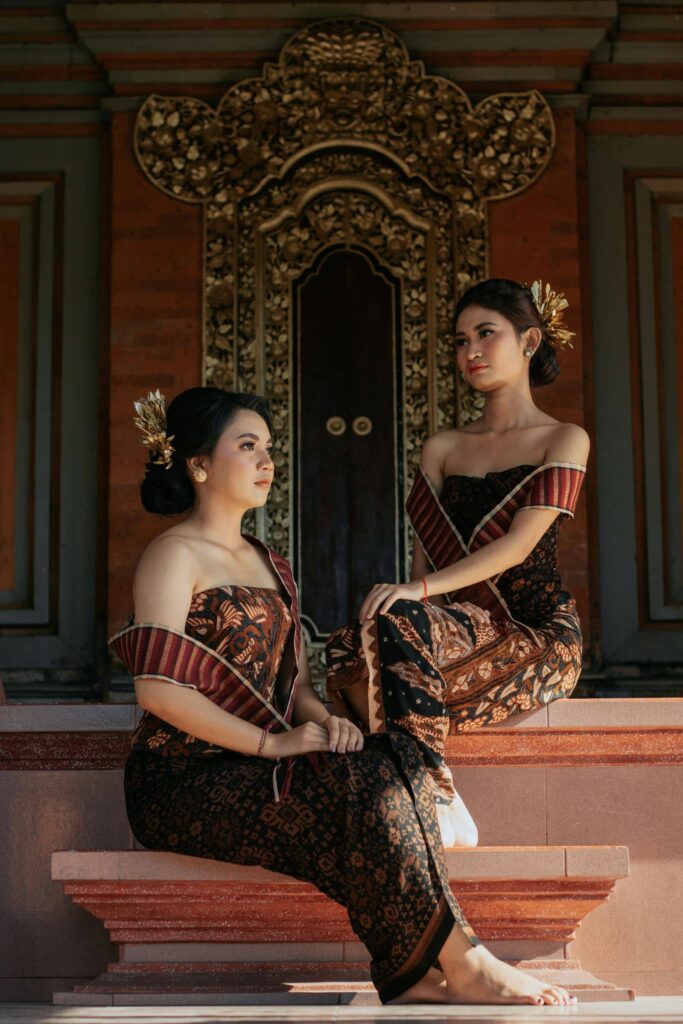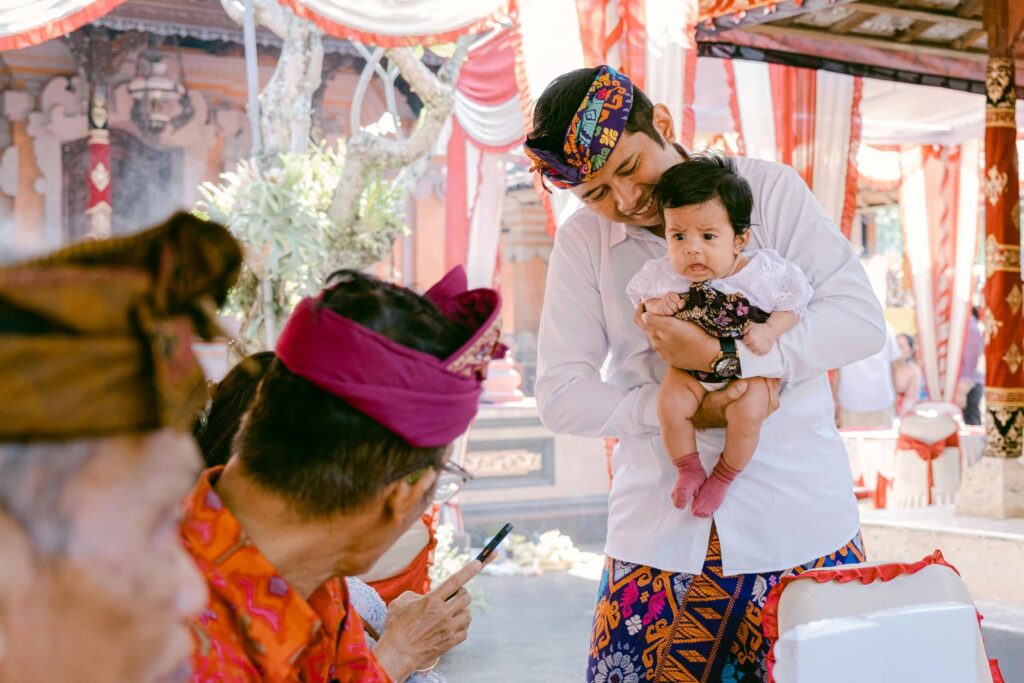
Balinese names are deeply rooted in cultural, familial, and spiritual significance. They reflect a person’s birth order, caste, gender, and sometimes personal characteristics. Let’s delve into the fascinating structure of Balinese naming conventions.
Birth Order Names
In Bali, children’s names often indicate their birth order within the family. These names are unisex and commonly used across the island:
- First-born: Wayan, Putu, or Gede
- Second-born: Made, Kadek, or Nengah
- Third-born: Nyoman or Komang
- Fourth-born: Ketut
If a family has more than four children, the cycle repeats. For instance, a fifth child might be named Wayan Balik, meaning “another Wayan” .
Caste Indicators
Balinese society traditionally recognizes four castes, each associated with specific name prefixes:
- Sudra (commoners): Typically use birth order names without additional titles.
- Wesya (merchants and administrative officials): Names may include Gusti, Dewa, or Desak.
- Ksatria (warriors and nobility): Common prefixes are Anak Agung, Tjokorda, or Ngurah.
- Brahmana (priests and scholars): Men often bear the title Ida Bagus, while women use Ida Ayu.
Additionally, the prefix Jero is used by individuals, typically women, who have married into a higher caste.

Gender Prefixes
To distinguish gender, Balinese names incorporate specific prefixes:
- I: Denotes a male.
- Ni: Indicates a female.
For example, I Wayan Gede refers to a first-born male, while Ni Made Ayu denotes a second-born female.
Personal Names and Nicknames
Beyond birth order and caste, individuals receive personal names, often of Sanskrit origin, reflecting positive qualities or aspirations. Examples include:
- Suardika: “Guiding light”
- Setiawan: “Faithful”
- Dewi: “Goddess”
Given the prevalence of common names, nicknames are widely used for differentiation. These can be based on physical traits, personality, or even Western names. For instance:
- Made Gemuk: “Chubby Made”
- Ketut Santi: “Peaceful Ketut”
- Wayan John: A blend of traditional and Western naming.

Navigating Balinese Names
While the naming system may seem intricate, understanding these conventions offers valuable insights into Balinese culture and social structure. If ever in doubt about someone’s name or its significance, don’t hesitate to ask. Balinese people are generally open and appreciative when others show interest in their traditions.
Planning Your Stay in Bali
To discuss planning your stay with one of our villa specialists, please get in touch.
